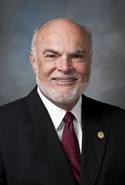 January 28, 2016 - In February, we will honor George Washington, known as the "Father of our Country," on President's Day. Through his skills, leadership and longing to live in a country of free people, he laid a foundation for our country's future by building a lasting democratic institution.
January 28, 2016 - In February, we will honor George Washington, known as the "Father of our Country," on President's Day. Through his skills, leadership and longing to live in a country of free people, he laid a foundation for our country's future by building a lasting democratic institution.
Here are five things happening around your state this month:
1. Updates on Texas Economy
Comptroller Glenn Hegar recently met with the Senate Finance Committee to update them on how falling oil and gas prices may affect the state's budget. He shared that because Texas has followed conservative fiscal policies, the state is well positioned to weather the downturn in oil and gas revenue. In addition, the Comptroller indicated the Texas economy has already absorbed most of the negative effects of the oilfield slowdown.
Texas has continued to attract other economic sectors, making our economy less dependent on the oil and gas tax revenues than it used to be. While it is hard to determine what the future will look like, I am confident Texas will remain strong and we will continue to lead the nation's economic recovery.
2. Monitoring Earthquake Activity
Over the past few years, Texas has been affected by numerous earthquakes, some of which have caused significant damage to local communities. During the 84th Legislative Session, the Legislature allocated $4.5 million to fund what is known as the TexNet Seismic Monitoring Program, which will involve placing 22 permanent seismograph stations and 36 portable stations in key locations across the state.
The system will be operated by the geology bureau, which is one of the oldest research units at the University of Texas in Austin. The bureau will study the activity of the earthquakes to determine and gain an understanding of the activity in the state, both those caused naturally and that which is potentially induced by human activity.
3. Protecting Our Borders
Last Fall, Lt. Governor Patrick appointed members to a Joint Interim Committee to Study Border Security. This committee is charged with reviewing the enactment of House Bill 11 from last session, which allocated $800 million to provide resources and manpower to secure the borders of our state.
The Committee recently held a hearing where they heard from Department of Public Safety (DPS) Director Steve McCraw on how DPS was progressing with the implementation. The DPS has seized $1.7 million worth of drugs and $3.1 million in cash related to drug trades over the past few months. The agency has also sent over 100 new troopers to the border, installed more than 480 cameras to detect illegal activity in the area, deployed eight tactical boats and added 14 aircraft.
4. Open and Campus Carry
Those licensed to carry concealed handguns have been allowed to openly carry since January 1st of this year, and on August 1st, concealed carry will be allowed on public college campuses. The Senate State Affairs Committee recently met to discuss both of these new laws with law enforcement and college chancellors. Public colleges are allowed to make their own policies to designate "gun-free zones" on their campuses as they determine is needed for campus safety.
The Committee discussed uncertainties in the laws for law enforcement and the general public. Law enforcement testified that there have been no major incidents related to the law to date, and many people are still concealed carrying instead of openly carrying. Local officials and business owners shared concerns in determining the law and providing notice to customers that they prohibit firearms on their premises. The committee and legislature will continue to monitor the laws to address and correct some of these uncertainties during the next legislative session.
5. Rebuilding Rusk State Hospital
The Department of State Health Services recently signed a contract with the University of Texas School of Architecture to develop initial plans to rebuild Rusk State Hospital. Rusk is one of the largest and oldest state mental health facilities, having been built in the late 1800's, and serves over 320 patients per day.
An inadequate mental health infrastructure contributes to additional demands on law enforcement, and tax dollars being spent to treat low-level offenders in jail. Texas is also paying $600 per day per bed to contract with private facilities for an additional 500 beds.
The plan will examine current mental health hospital designs and provide options to replicate modern hospitals beyond Rusk. Investing in our mental health infrastructure will help protect our state's finances and connect those in need of mental health services with high quality services.








